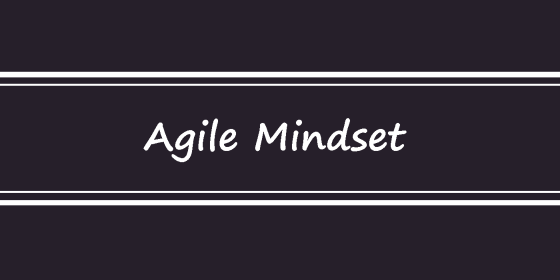Agile Mindset

The Agile Mindset is a set of beliefs, attitudes, and values that underpin the Agile approach to software development and project management. It is the foundation upon which Agile principles and practices are built. The Agile Mindset emphasizes flexibility, collaboration, customer-centricity, and continuous improvement.
Key aspects of the Agile Mindset include:
- Customer Value: The Agile Mindset places a strong emphasis on delivering value to customers. Understanding and fulfilling customer needs and preferences is a top priority.
- Adaptability: Embracing change and responding to it quickly is an essential aspect of the Agile Mindset. Agile teams are comfortable with uncertainty and are adaptive to changing requirements and priorities.
- Collaboration: The Agile Mindset promotes a collaborative culture. Team members work together, communicate openly, and share knowledge and expertise.
- Continuous Improvement: Agile practitioners are committed to continuous improvement. They regularly reflect on their processes and outcomes to identify areas for enhancement.
- Empowerment: Agile teams are empowered to make decisions and take ownership of their work. Trusting the expertise of team members is a fundamental principle.
- Iterative and Incremental Approach: The Agile Mindset encourages an iterative and incremental approach to development. Teams deliver valuable increments of work regularly.
- Transparency: Transparency is essential for building trust and enabling effective decision-making. Agile practitioners value transparency in all aspects of work.
- Feedback-Oriented: Agile teams actively seek feedback from customers, stakeholders, and peers. Feedback helps them validate their assumptions and refine their work.
- Focus on Quality: Delivering high-quality products and services is a key tenet of the Agile Mindset. Teams prioritize quality over quantity.
- Respect for Individuals: The Agile Mindset emphasizes respect for individuals, valuing diversity, and fostering an inclusive work environment.
- Customer Collaboration: Agile practitioners actively collaborate with customers to understand their needs and incorporate feedback into the development process.
- Lean Thinking: Lean principles, which focus on eliminating waste and maximizing value, are aligned with the Agile Mindset.
The Agile Mindset is not restricted to software development; it can be applied to various domains and industries. Beyond technical practices, the Agile Mindset promotes a culture of continuous learning, adaptability, and responsiveness to change.
Leaders, teams, and organizations that adopt the Agile Mindset can create an environment that encourages innovation, motivates team members, and enables them to deliver value more effectively. The Agile Mindset is a transformative shift in the way work is approached, and it enables individuals and organizations to thrive in today’s dynamic and fast-paced business landscape.